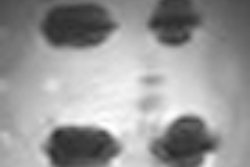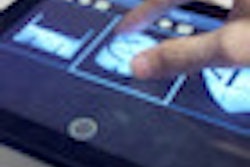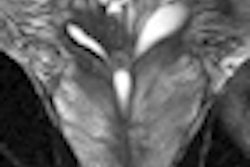When MRI exams are ordered for very young children, they tend to be performed in hospital radiology departments because these patients require sedation. The positive experiences of an outpatient MRI center using dexmedetomidine are reported in the February issue of the American Journal of Roentgenology.
Dr. Keira Mason, director of radiology anesthesia and sedation at Children's Hospital Boston, and colleagues reported the effects of sedating 279 pediatric patients with this drug prior to their undergoing an MRI examination. The exams were performed between April 2009 and July 2010 at an outpatient MRI center affiliated with a community hospital. The patients ranged in age from 2 months to 17 years, with a median age of 4.2 years (AJR, Vol. 198:2, pp. 448-452).
Most of the patients received a neurologic exam: 82% underwent brain MRI and 23% had a spine exam. The most common referring diagnoses were developmental delay (33%) and seizures (14%). The average duration of the MRI exam was about 38 minutes.
All patients received intravenous dexmedetomidine as a bolus of 3 µg/kg administered over a 10-minute period by an anesthesiologist. If the patient did not reach a Ramsay sedation score of 4, considered to be an adequate sedation depth to tolerate diagnostic imaging exams, a second or third dose was administered.
On average, patients requiring only one dose were sedated in about seven minutes; for those requiring two or three doses of the drug, the time to sedation was 13 minutes. The authors reported that 13 patients also required pentobarbital.
The majority of patients met discharge requirements within 21 minutes, although one spent more than two hours in the recovery room.
None of the patients experienced adverse respiratory events. One-third experienced blood pressure deviations from baseline by more than 20%, and 5% had heart rate deviations. However, no treatment was required, and these conditions returned to normal within 10 minutes.
"The lack of significant adverse respiratory events supports the use of dexmedetomidine in the outpatient setting," the authors wrote. "It is a safe, effective, and efficient sedation agent for children."



















